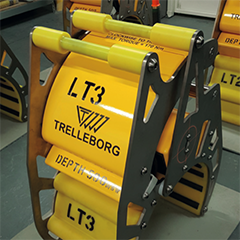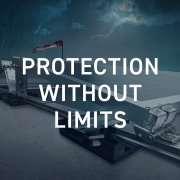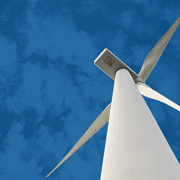Digital solutions for offshore windfarm cable protection and life extension
With the increasing trend toward cleaner energy sources, offshore wind technology plays a vital role in supporting the global transition to renewable energy. Development of shallow water locations is increasing in volume and pace, with the industry moving toward the more substantive wind energy resources that are found offshore in deeper waters, through the application and development of floating offshore platform technologies.
By 2025, it is anticipated that close to 20,000 turbines with 250 plus offshore substations will have been installed offshore. Even with the development of larger turbines, these quantities are expected to increase by a factor of three plus by 2050*.
Critical to their successful operation are the subsea power cables that have the essential function of transmitting generated power from the turbines to the substations (electric hub of the windfarm), and then onward to shore.
Digitization in renewable energy
Digital technology development continues at a rapid pace, increasing in functionality and accessibility, while supporting gains in productivity, efficiency, visibility, and informed decision making. With growing competition in renewable energy markets and ever more remote and demanding deep-water conditions, the renewables industry is looking at advanced digital solutions to enable new efficiencies and maximize return on investment.
The continued reliable performance of subsea power cables is essential to avoid costly repairs, replacement, and lengthy downtime. Digital solutions that provide insight through continuous monitoring can address existing design validation and performance assurance challenges, presenting new opportunities for the integrity management of these critical offshore power cables and the realization of new operating efficiencies.
Digital solutions for offshore windfarm cable protection and life extension
With the increasing trend toward cleaner energy sources, offshore wind technology plays a vital role in supporting the global transition to renewable energy. Development of shallow water locations is increasing in volume and pace, with the industry moving toward the more substantive wind energy resources that are found offshore in deeper waters, through the application and development of floating offshore platform technologies.
By 2025, it is anticipated that close to 20,000 turbines with 250 plus offshore substations will have been installed offshore. Even with the development of larger turbines, these quantities are expected to increase by a factor of three plus by 2050*.
Critical to their successful operation are the subsea power cables that have the essential function of transmitting generated power from the turbines to the substations (electric hub of the windfarm), and then onward to shore.
Digitization in renewable energy
Digital technology development continues at a rapid pace, increasing in functionality and accessibility, while supporting gains in productivity, efficiency, visibility, and informed decision making. With growing competition in renewable energy markets and ever more remote and demanding deep-water conditions, the renewables industry is looking at advanced digital solutions to enable new efficiencies and maximize return on investment.
The continued reliable performance of subsea power cables is essential to avoid costly repairs, replacement, and lengthy downtime. Digital solutions that provide insight through continuous monitoring can address existing design validation and performance assurance challenges, presenting new opportunities for the integrity management of these critical offshore power cables and the realization of new operating efficiencies.
To read the full content,
please download the PDF below.















